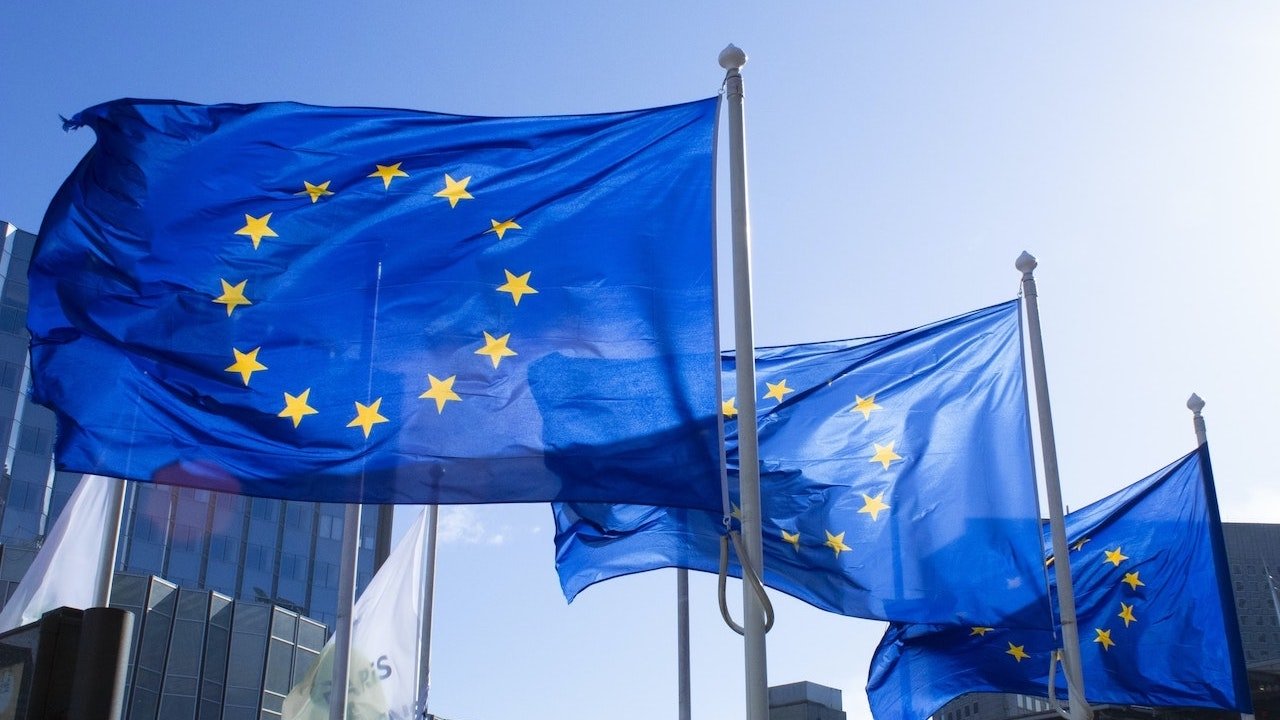Apple readying for legal battle against European Union's App Store regulations
Apple is drafting an appeal against the EU's Digital Market Act, arguing that it should not be required to allow alternative app marketplaces on its devices.

European Union flags
The Digital Markets Act (DMA) of the European Union is a series of regulations aimed at tech giants like Amazon, Apple, Google, and others. These laws aim to ensure fair competition by restricting the amount of priority a company can give to its own first-party services.
Apple will also argue that iMessage, its on-device messaging service exclusive to Apple users, shouldn't be scrutinized by regulators.
According to Bloomberg, Apple's legal team is preparing an assault against the provisions of the law. Apple's appeal is reportedly still in draft form and could change before the Nov. 16 deadline to file challenges at the EU's General Court.
Primarily, Apple is said to be focusing on iMessage not being large enough to count as a gatekeeper, in accordance with the law. It will also include a discussion about specifically what about the App Store needs to be regulated, and how.
In March 2022, the European Union published the Digital Markets Act. It went into effect May 2023.
In September, European Commissioner Thierry Breton said the Digital Markets Act is just the beginning, and Apple would need to open its whole ecosystem to competitors.
However, in the same month, Apple's iMessage and Microsoft's Bing were removed from compliance with the EU's Digital Markets. Apple argued that its iMessage service is too small in Europe to come under the law's conditions.
Read on AppleInsider

Comments
What’s insane is that
1) Apple hid the fact that all the apps must be downloaded from their App Store
2) Never allowed side loading or jailbreaking
3) Forced users to purchase their gear
4) Prohibited other platforms
/s
It’s a shame more thought wasn’t given into what you’re getting when you bought your iPhone
If you or the Android users are happy with the cross-platform lack of privacy, security, and continuity, then sure, they can talk to each other.
Wouldn't it be nice though if Android users could maintain the E2EE that Google gives them, even when an iPhone Apple Messages user enters the conversation and vice-versa? As it is both sides give up their security and privacy when the two sides try to message each other. and it all reverts to SMS.
That cross-platform encryption problem gets solved with the pending standard Messaging Layer Security which is already being adopted and ready to integrate by the March deadline.
https://datatracker.ietf.org/doc/html/rfc9420
But if the worlds richest and most powerful technology company, a company that pushes the industry where it wants it to go, is allowed to go its own independent way things will remain as they are: A leaky sieve using decades-old insecure messaging standards. And worse it's just because of the money Apple can make with lock-in. It does not make the users more secure or their conversations more private.
You are wrong though because people will install third party app stores. Maybe not all people but there are definitely those who will and there is the real possibility that some app stores may be safer than Apple's.
WHY should Apple choose for you what you can install or not?
But regardless, Apple should give up and comply. It’s an EU law.
Allowing side loading of Apps will reduce the privacy/security of ALL iOS users, even if they never install Apps from 3rd party stores.
Google are looking for another antitrust suit if they think Apple should use RCS while refusing to let WhatsApp use their APIs so they could also integrate RCS. All while also having a special deal with Samsung.
Google doesn’t care about consumers. They want Apple to help them succeed in the messaging space after 15 years and a dozen attempts at trying to make a successful messaging platform.
Apple should announce they’ll support RCS as soon as Google open their APIs to 3rd party Apps. Then watch them squirm.
It is worth noting that Apple actually benefitted from not being so important for many years, effectively allowing it to fall under the radar.
As is to be expected, once you hit a certain size, that will be one of the factors puts you into a position of scrutiny.
And they certainly would not be taking home 70-85% of sales made in the previous business models.